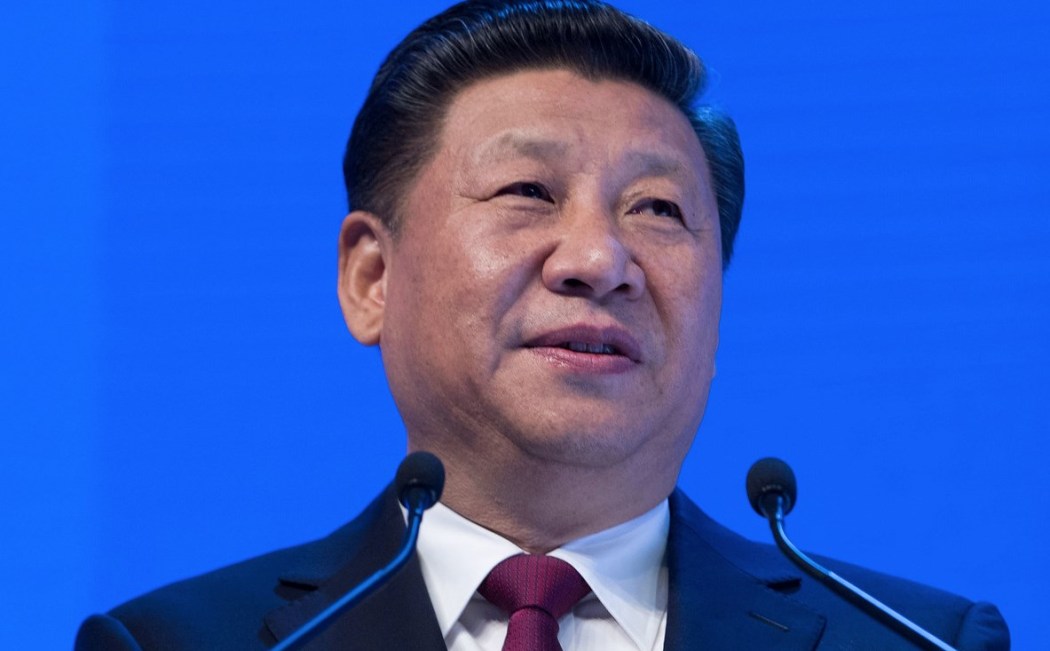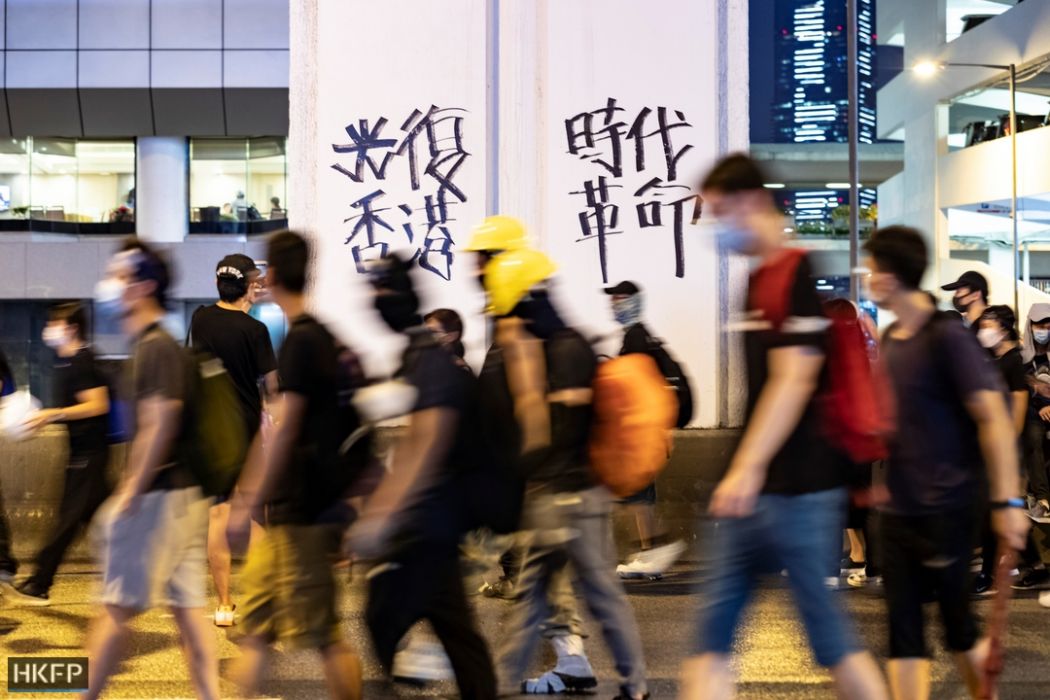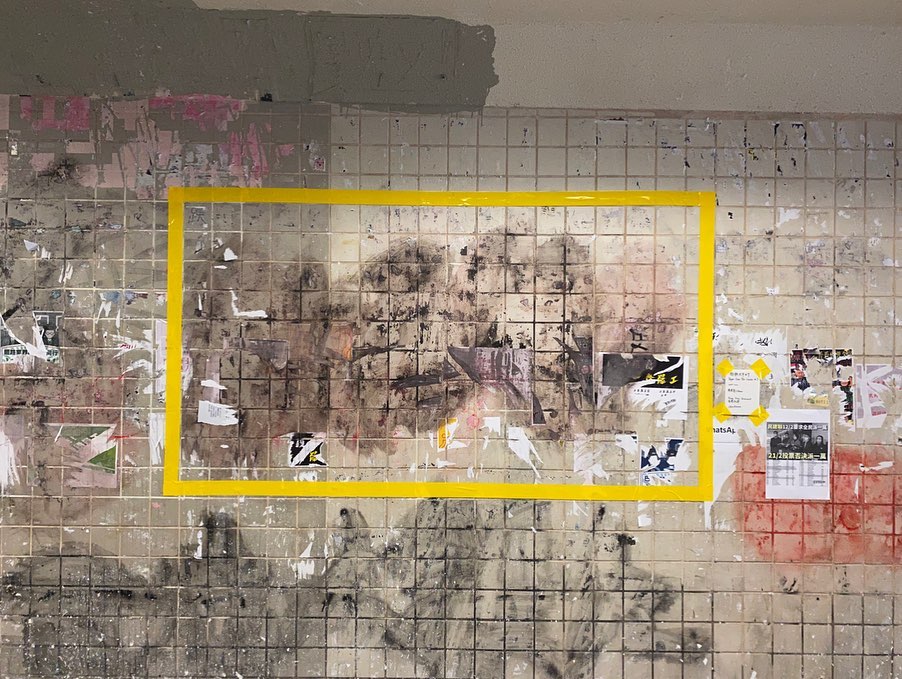The new-look legislature, without opposition, without pan-Democrats and without the limited democratic legitimacy which surrounded its predecessor, is now with us, and will remain with us until September at the earliest.
Further postponements of the elections cannot be ruled out. Our Imperial Big Brother does not love elections.

The Chief Executive Carrie Lam, timed her expression of joy that the council had returned to “normal” nicely. It arrived just before the Economist Intelligence Unit decided that we should be moved from the Flawed Democracy category to the Hybrid one, which I think is the EIU’s euphemism for “the locals have no rights but foreigners can still do business”.
Actually the council has not returned to normal, because the normal arrangement in elected legislatures is that there is an Opposition. The usefulness of this is recognised in the British parliament by the fact that the Leader of the Opposition gets a publicly funded salary for doing the job.
The opposition provides two services. It exposes the government to criticism and scrutiny, and it provides the electors with an alternative to the party in power. Since our current leaders do not cherish criticism and regard the electors with a mixture of pity and contempt, they see no useful role for an opposition. And the Party is, of course, in power for ever and ever amen.

This is a pity. I have been reading a book about the relationship between Winston Churchill and Clement Attlee, who at various times were Prime Minister and Leader of the Opposition facing each other, and could hardly have been more different in their political ideology. They managed to remain remarkably good friends. Neither was ever arrested.
They did have the advantage, it is true, of having been colleagues in the Coalition government during the Second World War, in which Churchill was PM and Attlee his deputy who filled in when he was away. I cannot resist quoting this description of their contrasting presiding styles:
“When the Prime Minister is away, Mr Attlee presides. We meet at the appointed time and go through the whole agenda and make all the necessary decisions. We go home at night knowing we have done a good day’s work. When Winston is in charge we have no agenda, make no decisions at all and go home at midnight conscious that we have been present at a historic occasion.”
Don’t suppose our own dear Exco resembles either much. But I digress.
What is Ms Lam going to do with her new-look legislature which, she noted, would no doubt be willing to approve things which the old one would have choked over. A law against doxing will please the Police Force, the nearest thing Ms Lam has to a base, in the political sense.
Less comment was attracted by the other half of her new legislative programme – a law against “fake news”.

But this is ominous. We did in the days of the previous colonial landlord have a law against fake news, as I recall. It had not been used for many years and was a clear violation of freedom of expression. As a result it was frequently criticised as a relic of an earlier, more primitive form of colonial government and, with some reluctance, it was eventually abolished.
One of the problems such laws present is the question what is false. I notice in the Education Bureau’s latest guidelines on national security education that students will be told that the new national security law did not diminish Hong Kong people’s rights and freedoms.
This is nonsense. A law which makes new criminal offences certainly diminishes people’s freedoms. It would be a complete waste of time if it did not.
Last year we were free to collude with foreign political organisations. This year we are not. This may be justified, trivial, a huge improvement on the old situation or all three. But it is clearly a reduced freedom. A government which is going to compel teachers to lie to their students is not an acceptable arbiter of what is false news.

Consider another bulletin from the education front: the slogan “Liberate Hong Kong, Revolution of our Times,” is to be banned because the government has “deemed” it to imply separatism, according to the relevant Secretary.
There are three objections to this. The first is that it is a clear usurpation of the powers and functions of the people who put the Oxford Dictionary together, and spend a great deal of time and effort on chasing an accurate definition of word meanings by looking at how they are actually used. I am proposing for next year’s update a new word – dictatwit – which I have just made up. It means an official who supposes it is his job to decide what words mean and believes anyone will take any notice.
The second objection is that the interpretation defies common sense. This can be easily demonstrated by inserting instead of Hong Kong a political entity to which separatism cannot possible be applied. “Liberate China, Revolution of our Times” still makes sense (in the purely linguistic sense, of course), whereas – say – “Home Rule for China, Revolution of our Times,” would not.

The third objection to this sort of thing is that separatism is now an offence, and it appears that some people have been charged with it. Accordingly it should be up to the courts to decide whether in any particular circumstances a particular set of words bears the meaning complained of, and in the meantime the matter is, as the Secretary for Justice put it in a slightly different context, sub judice and not a proper subject for comment.
But would it, under Ms Lam’s new legislation, be fake news to write that you did not believe the official “deeming” justified?
This is only one of the many problems attached to this sort of legislation, and there is no point in going through them all until some kind of draft appears. Let me just say that it is difficult to see our government coming up with something that will not result in a further slither down the The Economist’s democracy rankings.
And I do not expect to be protected from ill-judged innovations by the surviving legislature. It seems the only media issue which arouses any passion in the remaining seat warmers is an intemperate desire to see RTHK gelded.
Support HKFP | Policies & Ethics | Error/typo? | Contact Us | Newsletter | Transparency & Annual Report | Apps
Help safeguard press freedom & keep HKFP free for all readers by supporting our team
| HKFP is an impartial platform & does not necessarily share the views of opinion writers or advertisers. HKFP presents a diversity of views & regularly invites figures across the political spectrum to write for us. Press freedom is guaranteed under the Basic Law, security law, Bill of Rights and Chinese constitution. Opinion pieces aim to point out errors or defects in the government, law or policies, or aim to suggest ideas or alterations via legal means without an intention of hatred, discontent or hostility against the authorities or other communities. |

More HKFP OPINION:
HKFP has an impartial stance, transparent funding, and balanced coverage guided by an Ethics Code and Corrections Policy.
Support press freedom & help us surpass 1,000 monthly Patrons: 100% independent, governed by an ethics code & not-for-profit.










